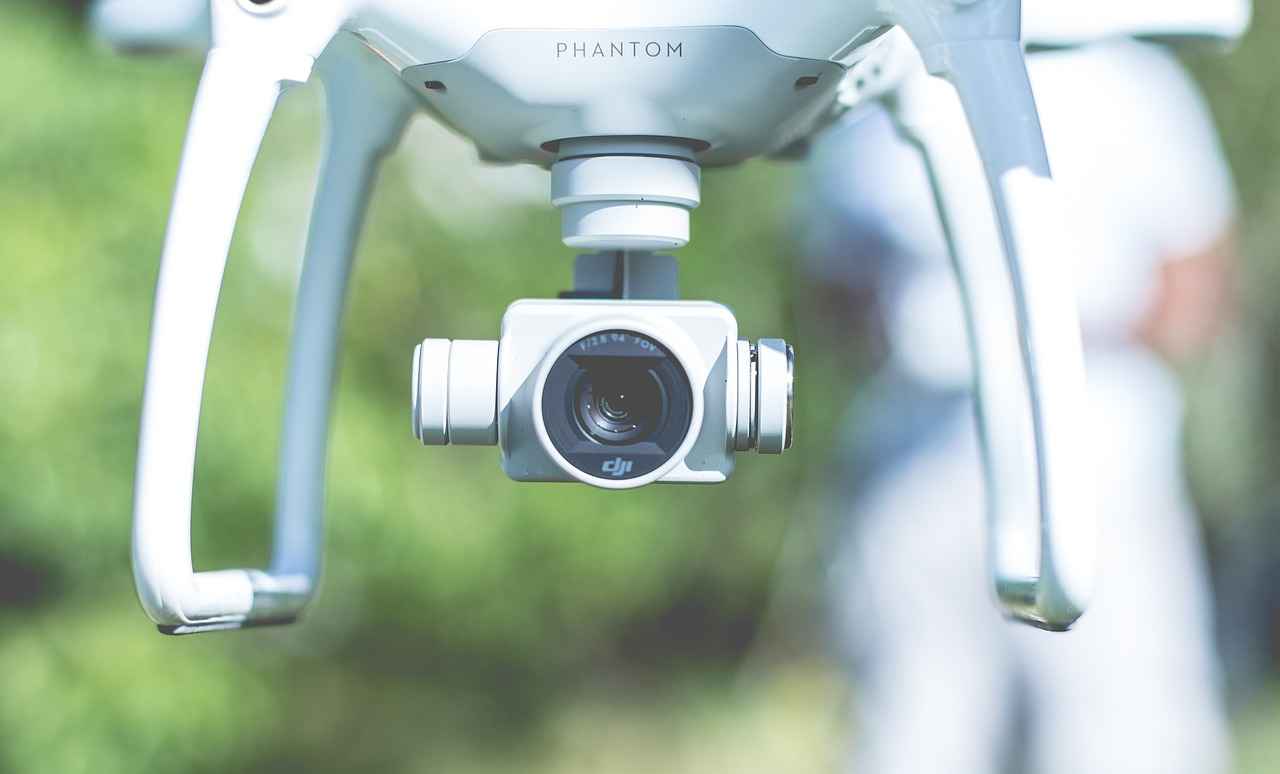Explore the best remote part-time nursing job opportunities available today. This comprehensive guide covers various roles, requirements, and tips to help you secure a fulfilling position in the nursing field.
Remote part-time nursing jobs have become increasingly popular, allowing nurses to balance their professional responsibilities with personal commitments. These roles can vary widely, offering a range of opportunities tailored to different skill sets and interests.
- Flexibility: Work from home or any location that suits you.
- Work-Life Balance: Manage your schedule to accommodate personal needs.
- Reduced Commute: Save time and money by eliminating travel.
Some of the most sought-after remote nursing positions include:
- Telehealth Nursing: Provide care through virtual consultations, assessing patients and offering advice.
- Case Management: Coordinate patient care remotely, ensuring individuals receive necessary services.
- Health Coaching: Promote wellness and preventive care, guiding patients in making healthy lifestyle choices.
Qualifications for remote nursing jobs typically include a valid nursing license and relevant experience. Pursuing additional certifications can further enhance your profile and make you more competitive in the job market.
To find these opportunities, explore various platforms:
- Job Boards: Websites like Indeed, Glassdoor, and Nurse.com frequently list remote nursing jobs.
- Networking: Join professional associations and attend events to connect with other nurses and discover job leads.
Tips for Applying: Tailor your resume and cover letter to highlight relevant experience. Emphasize your adaptability and technology skills to stand out from other candidates.
In conclusion, remote part-time nursing jobs offer exciting opportunities for flexibility and career growth. By understanding the landscape, qualifications, and application strategies, you can successfully navigate this evolving field and find a role that meets your needs.

1. What Are Remote Part-Time Nursing Jobs?
Remote part-time nursing jobs have become increasingly popular, allowing registered nurses to work from the comfort of their homes or other flexible locations. These positions are designed to provide essential care and support to patients while enabling nurses to maintain a healthy work-life balance. The flexibility of remote roles is particularly appealing, as it allows healthcare professionals to juggle personal commitments alongside their professional responsibilities.
The scope of remote nursing jobs is broad, encompassing various specializations and responsibilities. For instance, some nurses may engage in telehealth services, conducting virtual consultations with patients to assess their health needs. Others might focus on case management, coordinating care plans and ensuring patients receive the necessary services. Additionally, roles in health coaching are also available, where nurses guide individuals toward healthier lifestyle choices through virtual platforms.
As the healthcare landscape evolves, the demand for remote nursing positions continues to grow. This trend is driven by technological advancements and a greater emphasis on patient-centered care. Nurses in these roles can leverage their skills and experience while enjoying the benefits of a flexible schedule.
Moreover, remote nursing jobs not only provide convenience but also open up opportunities for professional development. Nurses can explore various areas of expertise, enhancing their qualifications and increasing their marketability in the ever-changing job market.
In conclusion, remote part-time nursing jobs offer a unique blend of flexibility and professional fulfillment. By understanding the diverse opportunities available, nurses can take advantage of these roles to build a rewarding career while maintaining their personal commitments.

2. Benefits of Working Remotely as a Nurse
In recent years, remote nursing jobs have gained immense popularity, offering a variety of benefits that cater to the evolving needs of healthcare professionals. These roles not only enhance job satisfaction but also contribute to a healthier work-life balance. Below are some key advantages of working remotely as a nurse:
- Flexible Schedules: One of the most significant benefits of remote nursing is the ability to create a work schedule that suits personal needs. Nurses can choose shifts that align with their family commitments or personal preferences, allowing for a more balanced lifestyle.
- Reduced Commuting Time: By eliminating the need to travel to a physical workplace, remote nurses save valuable time and money. This reduction in commuting not only decreases stress but also allows for more time to focus on personal interests or family.
- Comfortable Work Environment: Working from home provides nurses with the opportunity to create their ideal workspace. Whether it’s a quiet office or a cozy corner of the living room, a comfortable environment can enhance productivity and job satisfaction.
- Better Work-Life Balance: Remote nursing allows for a more integrated approach to work and personal life. Nurses can attend to family responsibilities or personal health without compromising their professional duties, leading to improved overall well-being.
- Access to Diverse Opportunities: Remote positions often open doors to a wider range of job opportunities. Nurses can work for organizations located in different regions or even countries, providing a unique chance to gain experience in various healthcare settings.
In conclusion, the shift towards remote nursing jobs is transforming the healthcare landscape. Nurses who embrace these opportunities can enjoy a fulfilling career while maintaining a healthy balance between their professional and personal lives.

3. Types of Remote Nursing Positions Available
In the evolving landscape of healthcare, remote nursing positions have become increasingly diverse, catering to a variety of skills and interests. Nurses can choose from several roles, each with its own unique set of responsibilities. Below are some prominent types of remote nursing positions:
- Telehealth Nursing: This role involves providing patient care through virtual consultations. Nurses assess patients’ conditions, offer medical advice, and coordinate care remotely. With the rise of telehealth, this position has become essential, allowing nurses to reach patients who may not have easy access to in-person care.
- Case Management: Case managers work to coordinate patient care, ensuring individuals receive necessary services and support. This role often involves collaboration with healthcare providers, insurance companies, and community resources. Case managers play a crucial role in guiding patients through complex healthcare systems.
- Health Coaching: Health coaches focus on promoting wellness and preventive care. They guide patients in making healthy lifestyle choices, often utilizing virtual platforms for communication. This role is ideal for nurses with a passion for education and patient empowerment.
- Clinical Research Nursing: In this role, nurses support clinical trials and research studies. They may be involved in patient recruitment, data collection, and monitoring patient safety. This position is perfect for nurses interested in contributing to medical advancements.
- Informatics Nursing: Informatics nurses work with healthcare data and technology to improve patient care and outcomes. They analyze data trends, implement health information systems, and provide training to staff. This role is increasingly important as healthcare becomes more data-driven.
Each of these remote nursing positions offers unique opportunities for nurses to leverage their skills while enjoying the benefits of flexible work arrangements. As the demand for healthcare services continues to grow, these roles are likely to expand, providing even more options for nursing professionals.
3.1 Telehealth Nursing
Telehealth nursing has emerged as a vital component of modern healthcare, enabling nurses to provide care remotely through virtual consultations. This innovative approach allows healthcare professionals to assess patients’ conditions, offer timely advice, and coordinate care without the need for in-person visits.
With the increasing adoption of technology in healthcare, telehealth nursing is becoming more popular among patients and providers alike. It offers a range of benefits, including:
- Accessibility: Patients in remote or underserved areas can access healthcare services more easily.
- Convenience: Patients can receive care from the comfort of their homes, reducing travel time and associated costs.
- Efficiency: Nurses can manage multiple patients throughout the day, improving workflow and resource allocation.
Nurses in this field utilize various technologies, such as video conferencing and mobile health applications, to communicate with patients. They are responsible for:
- Conducting assessments: Evaluating patients’ health conditions through virtual means.
- Providing education: Teaching patients about their conditions and treatment options.
- Coordinating care: Collaborating with other healthcare providers to ensure comprehensive patient management.
Furthermore, telehealth nursing requires a unique set of skills. Nurses must be proficient in technology, possess excellent communication abilities, and be adaptable to various situations. This adaptability is crucial, as they often encounter patients with diverse needs and backgrounds.
As we look to the future, the role of telehealth nursing is expected to expand significantly. The ongoing demand for remote healthcare solutions, coupled with advancements in technology, will likely enhance the effectiveness and reach of telehealth services.
In conclusion, telehealth nursing is not only transforming the way healthcare is delivered but also making it more accessible and efficient for patients. As this field continues to evolve, nurses who embrace these changes will play a pivotal role in shaping the future of healthcare.
3.2 Case Management
Case management is a crucial aspect of healthcare that ensures patients receive the necessary support and services tailored to their individual needs. In today’s evolving healthcare landscape, many case managers are transitioning to remote work, allowing them to coordinate patient care from the comfort of their homes.
As a remote case manager, professionals play a vital role in the healthcare system by acting as a bridge between patients, healthcare providers, and insurance companies. This position requires excellent communication skills and the ability to navigate various healthcare systems effectively. Case managers work closely with patients to assess their needs, develop personalized care plans, and ensure that they have access to the right resources.
One of the primary responsibilities of a remote case manager is to conduct comprehensive assessments of patients’ health conditions and social circumstances. This involves gathering information from various sources, including medical records, family input, and healthcare providers. By understanding the full scope of a patient’s situation, case managers can advocate for appropriate services, such as physical therapy, mental health support, or home health care.
Moreover, remote case managers often collaborate with healthcare providers and insurance companies to facilitate necessary approvals for treatments and services. This collaboration is essential in ensuring that patients receive timely care without unnecessary delays. Additionally, case managers are responsible for monitoring patient progress and adjusting care plans as needed, which requires a keen understanding of healthcare regulations and policies.
In summary, remote case management is a rewarding and impactful career that combines healthcare expertise with strong organizational skills. As the demand for remote healthcare services continues to grow, the role of case managers will remain integral in promoting patient well-being and ensuring that individuals receive the support they need.
3.3 Health Coaching
Health coaching has emerged as a pivotal component in the realm of healthcare, focusing on the enhancement of overall wellness and the promotion of preventive care. Health coaches serve as supportive allies, guiding individuals toward making informed and healthy lifestyle choices. Utilizing a variety of communication platforms, including video calls, chat applications, and social media, they create customized plans tailored to the unique needs of their clients.
In today’s fast-paced world, the significance of health coaching cannot be overstated. Coaches empower clients by:
- Setting achievable goals: They assist clients in identifying realistic health objectives, whether it be weight loss, improved nutrition, or increased physical activity.
- Providing accountability: Regular check-ins and progress assessments help clients stay on track and motivated.
- Offering education: Coaches educate clients about the importance of lifestyle changes and how they can impact long-term health.
Moreover, health coaches often utilize technology to enhance their services. By leveraging apps and wearable devices, they can monitor progress and provide real-time feedback. This integration of technology not only facilitates better communication but also allows for a more engaging coaching experience.
As more individuals seek to take control of their health, the demand for health coaches is on the rise. They play a crucial role in bridging the gap between traditional medical care and personal wellness, making them invaluable in today’s healthcare landscape.
In conclusion, health coaching is a vital service that fosters wellness and preventive care. Through personalized guidance and support, health coaches empower individuals to make positive lifestyle changes that can lead to a healthier future.

4. Qualifications Required for Remote Nursing Jobs
Qualifications Required for Remote Nursing Jobs
In the evolving landscape of healthcare, remote nursing positions have become increasingly popular, offering flexibility and the ability to work from home. However, to secure these roles, candidates must meet specific qualifications that vary by employer and job type. Understanding these requirements is crucial for aspiring remote nurses.
- Valid Nursing License: A current and valid nursing license is the cornerstone requirement for any nursing position, including remote roles. This license ensures that the nurse has met the educational and training standards necessary to provide safe and effective patient care.
- Relevant Experience: Most employers prefer candidates with prior nursing experience. This experience can vary from bedside nursing to specialized fields such as telehealth or case management. Having a background in the specific area you are applying for can significantly enhance your candidacy.
- Additional Certifications: While not always mandatory, certifications in areas such as telehealth, case management, or specific nursing specialties can give candidates a competitive edge. These certifications demonstrate a commitment to professional development and expertise in particular aspects of nursing.
Furthermore, the specific qualifications may differ based on the type of remote nursing job. For instance, telehealth nurses may need to be adept at using technology for virtual consultations, while case managers might require skills in patient advocacy and resource coordination.
Essential Skills for Remote Nurses: Beyond educational qualifications, remote nurses should possess strong communication skills, adaptability, and proficiency with technology. These skills are vital for effective patient engagement and navigating digital healthcare platforms.
In conclusion, aspiring remote nurses must ensure they meet the basic qualifications and possess the necessary skills to thrive in this dynamic field. By doing so, they can position themselves as strong candidates in a competitive job market.
4.1 Essential Skills for Remote Nurses
Essential Skills for Remote Nurses
In the evolving landscape of healthcare, remote nursing has become a vital component, enabling nurses to provide care from various locations. To excel in this field, certain skills are essential. Here, we will delve into the key skills that every remote nurse should possess to thrive in their role.
- Strong Communication Skills: Effective communication is the cornerstone of nursing, especially in a remote setting. Nurses must be adept at conveying information clearly and compassionately, whether through video calls, emails, or chat platforms. This skill ensures that patients feel understood and supported.
- Adaptability: The ability to adapt to new technologies and changing healthcare regulations is crucial. Remote nurses often face unexpected challenges, such as technical issues or shifts in patient needs. Being flexible and open to change allows nurses to provide continuous care effectively.
- Proficiency with Technology: Familiarity with various healthcare technologies is a must. Remote nurses should be comfortable using telehealth platforms, electronic health records (EHR), and communication tools. This proficiency not only enhances patient care but also streamlines workflows.
- Critical Thinking: Remote nurses must possess strong analytical skills to assess patient conditions accurately. They need to make informed decisions quickly, often without immediate support from colleagues. This skill is vital for ensuring patient safety and delivering quality care.
- Empathy and Compassion: Providing care remotely can sometimes lead to feelings of isolation for patients. Nurses must demonstrate empathy and compassion, creating a supportive environment that fosters trust and encourages open communication.
By honing these essential skills, remote nurses can significantly enhance their effectiveness and contribute positively to patient outcomes. As the demand for remote healthcare continues to grow, these skills will become increasingly important in ensuring quality care delivery.
4.2 Certifications That Can Enhance Your Profile
In the competitive field of nursing, obtaining additional certifications can significantly elevate a nurse’s professional profile. These credentials not only showcase a nurse’s dedication to their field but also highlight their specialized skills, making them more appealing to potential employers.
Among the most sought-after certifications are those in telehealth and case management. As healthcare increasingly shifts towards virtual care, nurses with telehealth certifications are well-positioned to meet the growing demand for remote patient support. This certification demonstrates a nurse’s ability to effectively utilize technology to assess and manage patient care from a distance.
Similarly, a certification in case management equips nurses with the skills necessary to coordinate comprehensive care plans for patients. This role often involves collaboration with various healthcare providers and ensuring that patients receive the necessary services. By obtaining this certification, nurses can prove their capability in managing complex patient needs, which is highly valued in today’s healthcare environment.
Moreover, pursuing certifications in specialized areas such as pediatric nursing, geriatric nursing, or mental health nursing can also enhance a nurse’s qualifications. These certifications reflect a commitment to providing high-quality care tailored to specific populations, further distinguishing candidates in the job market.
In addition to enhancing job prospects, certifications can lead to higher earning potential. Employers often recognize the value of certified nurses and may offer competitive salaries or bonuses as incentives for advanced qualifications.
In conclusion, investing in certifications not only strengthens a nurse’s resume but also contributes to their professional growth and development. By demonstrating expertise and commitment through these credentials, nurses can significantly enhance their appeal to potential employers and advance their careers in the ever-evolving healthcare landscape.

5. Where to Find Remote Part-Time Nursing Jobs
In today’s digital age, locating remote part-time nursing jobs has become more accessible than ever. A variety of platforms cater specifically to healthcare professionals seeking flexible work arrangements. By leveraging these resources, you can enhance your job search and find opportunities that align with your career goals.
- Healthcare Job Boards: Websites like Indeed, Glassdoor, and Nurse.com are excellent starting points. These platforms allow you to filter job listings based on criteria such as location, specialty, and experience level, making it easier to find the right fit.
- Company Websites: Many healthcare organizations post remote job openings directly on their websites. Regularly checking the careers section of companies you are interested in can yield fruitful results. Consider applying to well-known healthcare providers that are known for offering remote positions.
- Professional Networks: Platforms like LinkedIn are invaluable for networking with other nursing professionals. Joining nursing groups and participating in discussions can lead to job referrals and insider information about remote openings.
- Specialized Nursing Job Platforms: Websites such as FlexJobs and Remotely.jobs focus specifically on remote and flexible job opportunities. These sites often vet their listings, providing a safer and more reliable job search experience.
- Networking Events and Conferences: Participating in virtual nursing conferences and local meetups can expand your professional network. Engaging with peers in the field can lead to valuable job leads and insights into the remote nursing landscape.
Utilizing these resources effectively can significantly streamline your job search process, allowing you to discover numerous remote part-time nursing opportunities that suit your skills and lifestyle.
5.1 Job Boards and Websites to Explore
When searching for remote part-time nursing jobs, utilizing the right job boards and websites is essential for finding the best opportunities. Here are some of the most popular platforms that cater specifically to nursing roles:
- Indeed: This well-known job board aggregates listings from various sources, allowing users to search for remote nursing positions by filtering options such as job type, location, and salary range. Its user-friendly interface makes it easy to navigate and apply for jobs directly.
- Glassdoor: In addition to job listings, Glassdoor provides insights into company culture, salaries, and employee reviews. This information can help job seekers make informed decisions about potential employers in the nursing field.
- Nurse.com: Specifically tailored for nursing professionals, Nurse.com features a variety of remote nursing opportunities, along with helpful resources such as continuing education courses and career advice.
- SimplyHired: Another valuable resource, SimplyHired aggregates job listings from various websites and allows users to filter results based on their preferences, including remote options.
- FlexJobs: This platform specializes in remote, part-time, and flexible job opportunities across various industries. It requires a subscription, but the curated listings can save time and effort for job seekers.
By leveraging these platforms, nurses can effectively streamline their job search process and discover numerous remote opportunities that align with their skills and preferences. Always remember to refine your search criteria to enhance your chances of finding the perfect position.
5.2 Networking and Professional Associations
Networking and Professional Associations play a crucial role in advancing a nurse’s career, especially in the realm of remote part-time positions. Engaging with fellow professionals can open doors to numerous opportunities and provide invaluable insights into the evolving healthcare landscape.
By joining nursing associations, nurses can access a wealth of resources tailored to their needs. These organizations often offer job boards, training programs, and mentorship opportunities, which can significantly enhance a nurse’s employability. Additionally, many associations host networking events—both virtual and in-person—where nurses can connect with industry leaders and peers.
| Benefits of Networking | Description |
|---|---|
| Job Leads | Networking can lead to valuable job leads that may not be advertised publicly, giving nurses a competitive edge. |
| Industry Insights | Connecting with experienced professionals provides insights into trends and best practices in remote nursing. |
| Support System | Networking fosters a community where nurses can share experiences and seek advice on challenges they face. |
Moreover, participating in professional associations allows nurses to stay updated on the latest advancements in healthcare technology and practices. Many associations offer continuing education courses that are essential for maintaining licensure and enhancing professional skills.
In summary, actively engaging in networking and professional associations is not just beneficial but essential for nurses seeking remote positions. By building a robust professional network, nurses can gain access to new opportunities, enhance their knowledge, and ultimately advance their careers in the nursing field.

6. Tips for Applying to Remote Nursing Jobs
Tips for Applying to Remote Nursing Jobs
Applying for remote nursing jobs can be a competitive process, but with the right strategies, you can enhance your chances of landing a position that aligns with your skills and lifestyle. Here are some essential tips to guide you through the application process:
- Customize Your Resume and Cover Letter: Tailoring your resume and cover letter to highlight relevant experience and specific skills is crucial. Focus on your nursing background, emphasizing any remote work experience and your ability to adapt to different healthcare technologies.
- Highlight Your Adaptability: In the ever-evolving landscape of remote healthcare, showcasing your adaptability is vital. Mention instances where you successfully transitioned to new roles or technologies, demonstrating your ability to thrive in dynamic environments.
- Emphasize Technology Proficiency: Many remote nursing roles require proficiency with telehealth platforms and electronic health records (EHR). Make sure to include any relevant certifications or training that showcase your technological skills.
- Showcase Strong Communication Skills: Effective communication is key in remote nursing. Highlight your experience in patient interaction, whether through virtual consultations or written communication, to show your capability in maintaining rapport with patients.
- Prepare for Virtual Interviews: Virtual interviews are common for remote positions. Ensure you have a quiet, professional-looking space to conduct interviews, and practice common questions to boost your confidence.
- Network with Other Professionals: Utilize platforms like LinkedIn to connect with other nurses and healthcare professionals. Networking can lead to job referrals and insider information about available positions.
By following these tips, you can create a compelling application that stands out to potential employers in the remote nursing field. Remember, the key is to present yourself as a well-rounded candidate who is ready to meet the challenges of remote healthcare.
6.1 Crafting a Standout Resume
Crafting a Standout Resume is essential for nurses seeking remote part-time positions. A well-structured resume not only highlights your qualifications but also showcases your unique experiences and skills that align with the demands of remote nursing roles.
To begin, ensure your resume is organized and easy to read. Use clear headings and bullet points to make important information stand out. This will allow hiring managers to quickly identify your relevant experience. Here are some key components to include:
- Contact Information: Clearly list your name, phone number, email address, and LinkedIn profile.
- Professional Summary: Write a brief paragraph summarizing your nursing background, emphasizing remote work capabilities and key certifications.
- Experience: List your nursing roles in reverse chronological order. For each position, include your job title, employer, dates of employment, and a few bullet points detailing your responsibilities and achievements. Use quantifiable metrics to demonstrate your impact, such as the number of patients managed or improvements in patient satisfaction scores.
- Certifications: Highlight any relevant certifications, particularly those related to remote nursing or telehealth, as these can set you apart from other candidates.
- Skills: Include a section dedicated to your skills, focusing on both clinical competencies and soft skills like communication, adaptability, and technology proficiency.
Moreover, tailor your resume for each application. Research the specific role and organization to incorporate relevant keywords and phrases from the job description. This not only shows your genuine interest but also helps your resume pass through Applicant Tracking Systems (ATS).
In conclusion, a standout resume is your first step towards landing a remote nursing job. By emphasizing your nursing experience, certifications, and remote work capabilities with clear, quantifiable achievements, you can effectively capture the attention of hiring managers and increase your chances of securing an interview.
6.2 Preparing for Virtual Interviews
Preparing for Virtual Interviews is crucial in today’s digital job market, especially for remote nursing positions. As the healthcare industry increasingly adopts virtual platforms, mastering the art of virtual interviews can significantly enhance your chances of landing your desired role.
To begin with, it is essential to test your technology. This includes ensuring that your computer, webcam, and microphone are functioning properly. Conduct a trial run with a friend or family member to familiarize yourself with the video conferencing software that will be used during the interview. Check your internet connection to avoid disruptions, as a stable connection is vital for a seamless interview experience.
Next, focus on creating a professional backdrop. Choose a quiet, well-lit space that is free from distractions. A neutral background is often best, as it keeps the focus on you. Consider using a virtual background if your environment is not ideal, but ensure it is professional and not overly distracting.
Another important aspect of preparation is to practice common interview questions. Familiarize yourself with typical questions asked in nursing interviews, such as:
- What inspired you to pursue a career in nursing?
- How do you handle stressful situations?
- Can you describe a time when you had to advocate for a patient?
Practicing your responses can help build confidence and ensure that you convey your skills and experience effectively.
Lastly, dress professionally, just as you would for an in-person interview. Your appearance can influence the interviewer’s first impression, so opt for attire that reflects your professionalism and respect for the opportunity.
In conclusion, thorough preparation for virtual interviews is essential for success in securing remote nursing positions. By testing technology, creating a professional environment, practicing responses, and dressing appropriately, you can approach your interview with confidence and poise.

7. Common Challenges in Remote Nursing Jobs
While remote nursing offers significant flexibility and convenience, it also presents unique challenges that can impact job satisfaction and performance. Understanding these challenges is crucial for nurses looking to thrive in a remote work environment.
7.1 Managing Work-Life Balance
One of the primary challenges remote nurses face is the difficulty in separating work from personal life. Without a clear distinction between home and work environments, many nurses find themselves working longer hours, leading to potential burnout. To combat this, it is essential to implement structured work hours and create a designated workspace that fosters productivity while allowing for personal time.
7.2 Feelings of Isolation
Remote nurses often experience feelings of isolation, as they may miss the camaraderie and support found in traditional healthcare settings. To mitigate this, regular virtual check-ins with colleagues and participation in team meetings can help foster a sense of community and collaboration. Utilizing communication tools effectively can enhance interactions and maintain a supportive work culture.
7.3 Establishing Boundaries
Another significant challenge is the difficulty in establishing professional boundaries. Nurses may find it hard to disconnect from work-related tasks, which can lead to increased stress and decreased job satisfaction. Setting clear expectations with employers regarding availability and response times can help in creating a healthier work-life balance.
7.4 Technical Challenges
Remote nursing roles often require proficiency with various technologies. Technical difficulties, such as poor internet connectivity or unfamiliarity with telehealth platforms, can hinder effective patient care. Continuous training and support from employers can help nurses become more comfortable with the necessary tools and technologies.
Conclusion
By recognizing and addressing these common challenges, remote nurses can develop effective strategies to enhance their work experience. Emphasizing communication, boundary-setting, and ongoing training can lead to a more fulfilling and productive remote nursing career.
7.1 Managing Work-Life Balance
Managing Work-Life Balance is a critical aspect for remote nurses, as the lines between professional responsibilities and personal life can easily blur. The flexibility that remote work provides is undoubtedly beneficial, but it also poses unique challenges. To maintain a healthy work-life balance and prevent burnout, it is essential for remote nurses to adopt effective strategies.
One of the most effective ways to achieve this balance is by establishing structured work hours. Designating specific times for work can help create a routine that delineates professional responsibilities from personal time. This structure not only aids in productivity but also ensures that nurses can fully engage in their personal lives without the constant pressure of work tasks looming over them.
In addition to structured hours, creating a designated workspace is equally important. A dedicated area for work can enhance focus and productivity, while also serving as a physical reminder to switch off once the workday is complete. This separation helps to create a mental boundary that is crucial for maintaining a healthy balance.
Moreover, incorporating regular breaks into the workday can significantly reduce stress and prevent burnout. Short breaks allow nurses to recharge, which can lead to improved concentration and job satisfaction. Engaging in activities such as stretching, meditating, or simply stepping outside for fresh air can rejuvenate the mind and body.
Lastly, it is vital for remote nurses to communicate openly with their employers about their needs and boundaries. This transparency can foster a supportive work environment where nurses feel empowered to prioritize their well-being.
In conclusion, while remote nursing offers flexibility, it is crucial to implement strategies that promote a healthy work-life balance. By setting structured work hours, creating a dedicated workspace, taking regular breaks, and maintaining open communication, remote nurses can thrive both professionally and personally.
7.2 Staying Connected with Colleagues
Staying Connected with Colleagues is crucial for remote nurses, as the nature of their work can lead to feelings of isolation. While the flexibility of remote nursing offers many benefits, it can also create challenges in maintaining professional relationships and support networks.
To combat the sense of isolation, regular communication with colleagues is essential. This can be achieved through:
- Weekly Check-Ins: Scheduling consistent meetings allows nurses to share experiences, discuss challenges, and celebrate successes.
- Virtual Team Meetings: Participating in team meetings fosters collaboration and helps maintain a sense of belonging within the team.
- Peer Support Groups: Joining or forming support groups can provide a platform for sharing insights and coping strategies.
Additionally, leveraging technology can enhance connectivity. Tools such as video conferencing, instant messaging, and collaborative platforms enable nurses to interact in real-time, regardless of their physical location.
Engaging in professional development opportunities can also help remote nurses feel more connected. Attending online workshops, webinars, or conferences allows them to network with other professionals and gain new skills.
Moreover, establishing a routine that includes social interactions can improve job satisfaction. Simple practices such as virtual coffee breaks or informal chats can significantly enhance camaraderie among team members.
In summary, while isolation can be a concern for remote nurses, proactive efforts to stay connected with colleagues through regular communication, technology, and professional engagement can foster a supportive work environment. By prioritizing these connections, remote nurses can enhance their job satisfaction and overall well-being.

8. Future Trends in Remote Nursing
Future Trends in Remote Nursing are shaping the healthcare landscape, significantly impacting how nurses provide care and interact with patients. As technology continues to evolve, the demand for remote nursing roles is projected to rise, driven by innovations and a growing preference for telehealth services.
The increasing integration of telehealth solutions into everyday healthcare is a key trend. Telehealth allows nurses to conduct virtual consultations, making healthcare more accessible for patients who may have difficulty visiting traditional healthcare facilities. This shift not only enhances patient convenience but also enables nurses to reach a broader patient base, thus improving overall healthcare outcomes.
Another notable trend is the advancement of artificial intelligence (AI) in nursing practices. AI can assist nurses in monitoring patient data, predicting health issues, and personalizing care plans. By leveraging AI tools, nurses can enhance their efficiency and focus more on patient interaction, which is crucial for effective care delivery.
Moreover, the rise of mobile health applications is transforming patient engagement. These apps empower patients to take charge of their health by providing them with tools to track their conditions, schedule appointments, and communicate with their healthcare providers. Nurses play a vital role in guiding patients on how to utilize these technologies effectively.
As remote nursing continues to grow, continuous education and training will be essential. Nurses will need to stay updated on the latest technologies and best practices in telehealth to remain competitive in the job market. Pursuing certifications in telehealth nursing and related fields can enhance their qualifications and career prospects.
In conclusion, the future of remote nursing is bright, with technology paving the way for more flexible and efficient healthcare delivery. By embracing these trends, nurses can adapt to the evolving landscape and continue to provide high-quality care to their patients.
8.1 The Rise of Telehealth Services
The Rise of Telehealth Services
In recent years, telehealth services have emerged as a pivotal force in the healthcare industry, transforming how patients and healthcare providers interact. This innovative approach allows healthcare professionals, particularly nurses, to deliver care remotely, enhancing accessibility and convenience for patients. As the demand for healthcare services continues to grow, telehealth is becoming an essential component of modern healthcare delivery.
What is Telehealth?
Telehealth refers to the use of technology to provide healthcare services remotely. This encompasses a wide range of activities, including virtual consultations, remote patient monitoring, and health education. The primary goal is to improve patient outcomes while making healthcare more accessible.
Why is Telehealth Gaining Popularity?
- Convenience: Patients can receive care from the comfort of their homes, eliminating the need for travel and reducing wait times.
- Increased Access: Telehealth bridges the gap for patients in rural or underserved areas, ensuring they receive necessary care.
- Cost-Effectiveness: Remote consultations can be more affordable than in-person visits, benefiting both patients and providers.
Impact on Nursing Practice
Nurses play a critical role in telehealth. They conduct virtual assessments, provide patient education, and coordinate care, ensuring that patients receive comprehensive support. This shift also allows nurses to utilize their skills in new ways, adapting to technological advancements and evolving patient needs.
Future of Telehealth
The future of telehealth looks promising, with ongoing advancements in technology and an increasing acceptance of remote care. As more patients seek convenient healthcare solutions, the role of telehealth in nursing will likely expand, leading to improved patient outcomes and greater job satisfaction for healthcare providers.
In conclusion, the rise of telehealth services marks a significant shift in the healthcare landscape. By embracing this trend, nurses can enhance their practice while providing essential care to patients in a rapidly changing environment.
8.2 Innovations in Nursing Technology
Innovations in Nursing Technology are rapidly reshaping the healthcare landscape, particularly in the realm of remote nursing. As technology continues to advance, nurses are finding new ways to enhance patient care and optimize their workflows. This article delves into the various innovations that are making a significant impact on nursing practices today.
One of the most notable advancements is the integration of Artificial Intelligence (AI). AI tools are being utilized to analyze patient data, predict health trends, and assist in clinical decision-making. For example, AI algorithms can process vast amounts of data to identify potential health risks, enabling nurses to intervene proactively. This not only improves patient outcomes but also allows nurses to dedicate more time to direct patient care.
Additionally, telecommunication tools have become indispensable in nursing. Telehealth platforms enable nurses to conduct virtual consultations, providing care to patients in remote areas or those unable to visit healthcare facilities. This innovation has proven especially beneficial during public health crises, ensuring continuity of care while minimizing exposure risks.
Wearable technology is another exciting development in nursing. Devices such as smartwatches and fitness trackers allow nurses to monitor patients’ vital signs in real-time. This constant monitoring can lead to early detection of complications, ultimately enhancing patient safety and satisfaction.
Moreover, electronic health records (EHRs) have streamlined documentation processes, allowing nurses to access and update patient information swiftly. This transition from paper-based records to digital systems facilitates better communication among healthcare team members and reduces the likelihood of errors.
In conclusion, embracing these technological innovations is crucial for nurses aiming to improve patient care and streamline their workflows. As the field of nursing continues to evolve, staying informed about these advancements will empower nurses to provide the highest quality of care.

9. Conclusion: Embracing Remote Nursing Opportunities
Conclusion: Embracing Remote Nursing Opportunities
In today’s rapidly evolving healthcare landscape, remote part-time nursing jobs present a unique blend of flexibility and professional growth. As more healthcare facilities adopt telehealth practices, the demand for skilled nurses who can operate remotely is on the rise. This shift not only allows nurses to maintain a work-life balance but also opens doors to a variety of specialized roles that cater to different interests and expertise.
Understanding the nuances of remote nursing is essential for success in this field. Nurses must be equipped with the right qualifications, including a valid nursing license and relevant experience. Additionally, pursuing certifications in areas such as telehealth or case management can significantly enhance a nurse’s profile, making them more competitive in the job market.
Moreover, the application process for remote nursing positions requires a tailored approach. Crafting a standout resume that highlights relevant skills and experience is crucial. Nurses should emphasize their adaptability and proficiency with technology, as these attributes are vital for engaging with patients in a virtual environment.
However, while remote nursing offers numerous benefits, it is not without challenges. Issues such as isolation and maintaining work-life boundaries can arise. To mitigate these challenges, nurses should implement structured work hours and actively seek opportunities for connection with colleagues through virtual meetings.
As the healthcare industry continues to embrace technology, the future of remote nursing looks promising. By staying informed about industry trends and adapting to new tools, nurses can thrive in this dynamic environment. In conclusion, embracing remote nursing opportunities not only enhances personal flexibility but also contributes to the evolving landscape of healthcare.
Frequently Asked Questions
- What qualifications do I need for remote part-time nursing jobs?
To qualify for remote nursing positions, you typically need a valid nursing license, relevant experience, and sometimes additional certifications. Specific requirements can vary based on the job type and employer.
- What types of remote nursing positions are available?
There are various roles, including telehealth nursing, case management, and health coaching. Each role has unique responsibilities that cater to different skill sets and interests.
- How can I find remote part-time nursing jobs?
You can find remote nursing jobs on various platforms such as healthcare job boards, company websites, and professional networks. Popular job boards like Indeed and Nurse.com often list these opportunities.
- What are the benefits of working remotely as a nurse?
Remote nursing jobs offer numerous advantages, including flexible schedules, reduced commuting time, and the ability to work in a comfortable environment, leading to a better work-life balance.
- What challenges might I face in a remote nursing job?
While remote nursing provides flexibility, challenges such as isolation and difficulty in establishing work-life boundaries can arise. It’s essential to develop strategies to manage these issues effectively.
